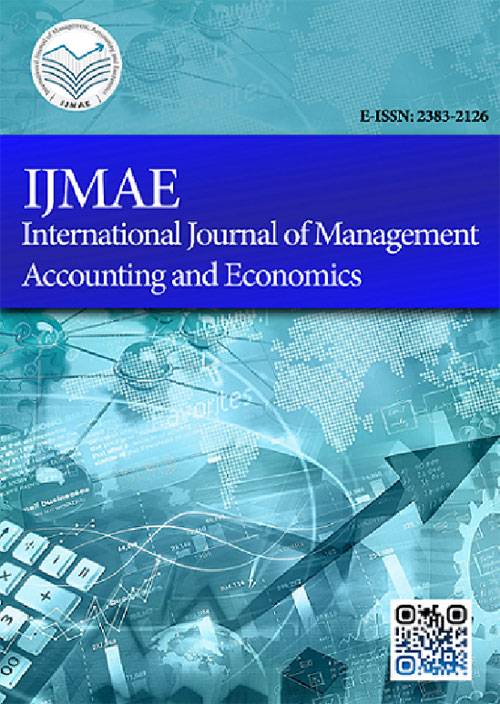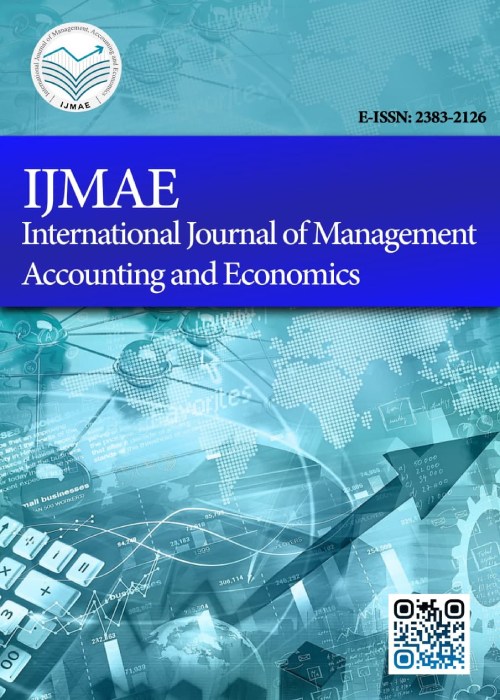فهرست مطالب

International Journal of Management, Accounting and Economics
Volume:7 Issue: 11, Nov 2020
- تاریخ انتشار: 1399/10/02
- تعداد عناوین: 4
-
Pages 622-647
The aim of this research is to examine the impact of learning organization on innovation, mediated by the self-efficacy among Multinationals in Malaysia. This study builds on the conceptual framework and further analyses the important factors of learning organization in predicting individual innovation and self-efficacy through critical evaluation of associated theoretical models, literature study and empirical testing. Due to the respondents' proximity, availability and accessibility, this study has used non-probability convenience sampling technique. Data was collected using a Likert-Scale (1-5) questionnaire from 308 who were employed at Multinationals. The reliability and validity of the item construct was tested. A structural equation modelling was carried out to analyse the data via AMOSE 22. The findings indicated that learning organization has a positive significant influence on innovation and self-efficacy. However, the result showed that self-efficacy has no significant effect on innovation. The result showed that the mediating effect of self-efficacy on the relationship between learning organization and innovation was not significant. The overall conclusion is that innovation can be cultivated and enhanced through learning organisation. The theoretical contribution of this research is that learning organisation and self-efficacy are two key determinants of innovation. Practically, this research findings can be used to design training and development programs to enhance learning organisational culture among the employees which in turn engage themselves in innovative behaviour. Managers can also use this research findings to identify and deciding to allocate resource to enhance innovation through most critical aspects of learning organisation than all aspects.
Keywords: Learning Organization, Innovation, self-efficacy, Multinationals -
Pages 648-659
PPP projects are aimed at finding solutions to public problems by taking advantage of resources in the hands of public sector by combining the strengths in public and private sectors to solve problems that members of public face. The purpose of this study was to assess the Influence of Managerial Skills on Completion of PPP Projects: A Case of Sondu-Miriu Power Project in Kenya. The researcher adopted a correlational design where purposive sampling technique was adopted to select 39 management staff who were administered with questionnaires face to face or by mail. Mean and standard deviation were used for descriptive analysis while Pearson correlation was used for inferential purposes. The study found that delegating work to people with time to complete tasks moderately improves on completion of PPP projects. Further, following up on team members whose behaviors might impact projects negatively highly improves completion of PPP projects in terms of quality, time and cost. The study concludes that managerial skills strongly positively influence completion of PPP projects. The study recommends that, during implementation of PPP, selection of managers should be critically done to ensure that candidates with proven records and abilities are selected to implement the project.
Keywords: Managerial Skills, Construction projects, Public-Private Partnershi -
Pages 660-674
This study describes an employee productivity model that has been implemented in the Darur Roja Vocational School. The approach used is descriptive qualitative and case studies. The process of collecting data through observation and interviews in making employee productivity models. Recruitment & selection of employees is the initial process in obtaining human resources according to organizational needs. Training & development is an effort to fulfill employee competence according to educational demands. Employee productivity must always be strived to be able to compete with competitors to be able to achieve organizational expectations. The family culture is unique for vocational schools so that employee productivity can always be increased according to organizational achievements.
Keywords: employee productivity, Recruitment & Selection, Training & Development, Organizational Culture -
Pages 675-682
Educational institutions in Sri Lanka like schools and universities were primarily based on traditional face-to-face mode of teaching until the beginning of year 2020. The sudden outbreak of Covid-19 shook the entire world while challenging the education system across the globe. The situation led universities and other educational institutions to shift their teaching/learning activities to online mode from on campus, almost overnight. Online education was not popular in Sri Lanka by the time of this rapid transition and there were very fewer number of online courses offered by limited number of universities. Online teaching/learning that emerged with the pandemic, has been challenging in Sri Lankan university system as students, teachers and administrators were not either prepared or trained for it. This paper attempts to explore key challenges confronted with the implementation of online pedagogical approach, so that this understanding may help universities to enhance the experiences in online teaching/learning in future endurances. Amongst several, lack of training in pedagogy for online teaching is the severest challenge faced by many institutions. Most of the instructors were new to online teaching and had shifted with little or no training or preparation specific to this mode of delivery. Instructors must receive proper professional training and development to have higher expectations and to adapt their teaching to appropriate online teaching strategies.
Keywords: COVID-19, Challenges, Education, online teaching, Online Learning


